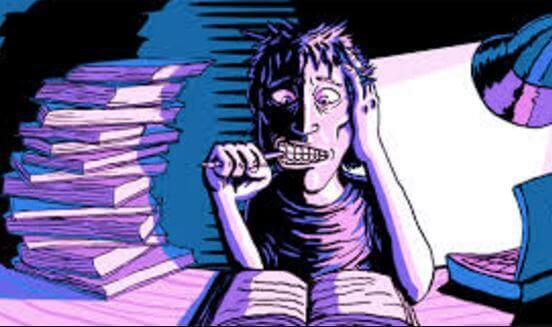Could stress be defined as the cognitive, emotional and behavioral state that generates the desire to want?While we’re ‘here’. It is negative when it overloads us and becomes agony with the collection of thoughts, the organization of tasks and the optimization of our resources.
Professional, social, family and personal pressures force us to adjust our expectations and lives continuously, we cannot afford to lose our work, we have to pay debts, attend 20 tasks on hold, maintain emotional dedication to our spouse, study for exams, etc.
- One day.
- Immersed in all these obligations.
- We realized that it took us a long time to fall asleep and that at three in the morning we are in bed trying to find a way to manage the expenses of the month.
Hours pass and we are increasingly distressed by the fact that we cannot sleep and need to rest for the next day. Finally, a light and unreasonable sleep invades us, making us increasingly tired and moody.
This situation is repeated day by day, causing an increase in exhaustion, generating strong and increasingly frequent headaches, giving the unpleasant sensation of mental and physical numbness.
It is likely that the pulse will accelerate and that from time to time some tachycardia appears, in addition, in some situations the breathing is choppy and in others we try to define a deep breathing rhythm to manage the state of attention.
When stressors are psychological and social, the body triggers certain physiological responses that allow you to keep up for a while and worry about what might have negative consequences for us (for example, working so you don’t be without financial support).
However, these physiological responses are not adaptive “long-term”; in fact, if maintained over time, its effects are evident in decreased sex drive, in menstrual problems in women, in the worst functioning of the immune system, etc.
Although the subject is much more complex, we could understand as stressful anyone who disturbs our balance and forces the axis of the adrenal hypothalamus to try to mediate a readjustment that guarantees our psychological and physical well-being.
Robert M. Salpolsky wrote in his recommended book “Why Don’t Zebras Have Ulcers?” That “in our privileged life, we were the only ones in the animal world who were smart enough to invent certain stressors, and the only ones stupid enough to allow them to dominate their own lives. “
Stress is the result of the perception of discrepancies between the demands of the environment and the tools we have to deal with them, so equipping ourselves with the tools to balance ourselves on a daily basis is a good strategy to implement an appropriate response.
How we respond to stress and how we handle it will depend a lot on the different personal and social variables that occur.
The reader will already know that the magic formulas that work for all cases do not exist, however, we can name some of these strategies and techniques that we can learn from a professional and with specific self-help manuals.
Thus, with manuals aimed at anxiety and stress problems, we will have:
It will be helpful and rewarding to learn more about breathing, stop thinking, relaxation and coping techniques to deal with stress and anxiety. Similarly, mindfulness or mindfulness technique is a good way to learn to focus on the here and now.
The list of recommendations can be as long as specific cases of stress and anxiety, so it’s important to drill down into finding the most useful strategies for dealing with stressful situations so harmful to our health.

